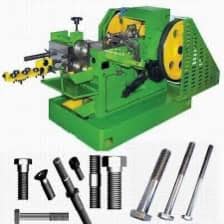By Denis Jjuuko
In one of the dingy alleys of Nakasero at hitherto Kampala’s major hardware market area existed a very tiny shop that seemed to attract lots of customers. The customers, largely contractors would come with a piece of metal that they showed to the lady owner. The customers wanted the exact same part.
Many times, the seller didn’t know where the part was. She was sure she had it but she didn’t know where to find it. However, she knew how to find it. This meant emptying her sacks or baskets on the ground floor and start going through hundreds of pieces of metal to find the part. As more customers came over, she would task the buyer to carefully look for what he was looking for as she attended to another customer. It was tedious but her customers never complained. They knew the modus operandi and most importantly they were sure they would find what they were looking for.
The shop owner used to go to Dubai, Japan and such other places to source her wares. Most of them were old stuff, discarded from motor vehicles, towers, and machinery. Here people would use her wares as replacement parts in vehicles and even factories, construction and fixing whatever needed fixing.
The materials she was selling aren’t unique at all. Simply, bolts and nuts. Yes, different sizes of bolts and nuts. As her business boomed and she became the reference point for bolts and nuts in Kampala, other people started similar shops in Shauri Yako and Kisekka markets. I don’t know whether her tiny shop still exists but there are many other shops today that sell bolts and nuts.
They are usually in high demand as replacement parts for vehicles and factories, construction and for fixing lots of things. The funny thing is that the last time I checked, there was no factory making bolts and nuts in Uganda.
I was once directed to one in Namanve industrial area. The warehouse was well decorated with all sorts of bolts and nuts and other materials that form the fastening industry. I realized the warehouse was a store and wholesale selling point. The owner was simply importing them from China and India. Though of course, my research may not have been thorough and was done several years ago. There could be guys making them today.
I have googled several times how bolts and nuts are made and saw several videos from India and China. There was nothing sophisticated about making a bolt or nut. Largely, it involved an iron or steel bar that fed into a machine that sized it, created threads and the shape at the top. Nothing special to be honest.
This story came to mind over the weekend when Kiira Motors announced that it had made eight electric buses from its temporary premises at Luweero Industries in the precinct of the UPDF barracks in Nakasongola. Like every time Kiira Motors makes such an announcement, the story that trends on social media is whether the parts were made in Uganda or not, followed by the argument that we cannot make things.
But nobody manufactures a car in its entirety. It is small parts made by so many players that are put together to make a car. Same way a 5-star hotel makes a buffet. They get ingredients for the buffet from several suppliers who also get them from several farmers. It is called a value chain.
Anyway, most motor vehicles have more than 30,000 parts. Buses, sometimes have as many as 70,000 parts. Many of them have to be fixed together using bolts and nuts. If our argument is that we can’t make a car, why then can’t we at least make bolts and nuts?
It isn’t just bolts and nuts that we can make. There are many things that we can make on a vehicle that don’t require significant investment. Individuals asking what are we making on a vehicle can easily invest some little money in such areas — same amount they invest in a plot of land that remains idle and bringing no income in places like Kira (no pun intended).
The beauty of car parts is that the majority can be used in other sectors. For example, we can make car seats but if you can make car seats, you can also make seats for technical benches at stadiums (Hoima stadium is coming up), dental clinic chairs, waiting room/reception chairs and basically any upholstering. We already have an industry here in Kisenyi where taxi seats are made. We simply need to deploy slightly better technologies.
Fiber parts like face and rear. If you can make translucent sheets used for roofing shades and pergolas, you can make car fenders and bumpers. Brackets are used a lot to attach a range of car systems. All one needs is a bender and cutter to turn iron bars into such parts. Anyone making stainless steel balconies can make bus hand holds and cabin rails. Internal aluminum moldings should not be so difficult either.
Cars are very sophisticated as a finished unit but many parts that make a car are not that sophisticated to make. And like I said earlier, most of these parts can be used in all sorts of industries and sectors. Instead of spending our bandwidth on the argument that we cannot make a car, what about, as small businesses, we started with those basic parts like bolts and nuts?
The writer is a communication and visibility consultant. djjuuko@gmail.com










